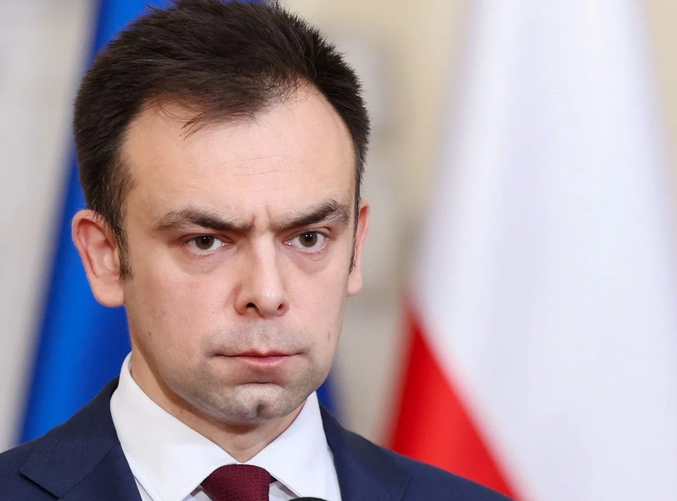Gnoza is the top opponent of Christendom. In ancient times, gnostics tried to lie the saving work of Jesus Christ. Today, Satanists and masons are eager to get gnostic motives. frequently in a camouflaged way, so as to convince believers to their ideas as well.
Paul Chmielewski writes about this in his book “Heiters. Old heresies in fresh robes", a passage of which we print below courtesy of the “Fronda” release.
***
Gnoses or cognition
Gnoza – in Old Greek γνῶσις (gnosis) – virtually means knowledge. In this sense, the word "gnoza" was besides utilized in past without any heretical raids. Many Greek - speaking Christian authors have done so. The word “gnoza” appears in the fresh Testament, about the “real gnoza” of Christians was written by St. Clement of Alexandria, among another things in the context of the allegorical explanation of Scripture. Origen besides utilized the concept. Finally, St. Irenaeus of Lyon himself, an apologet, a martyr, a heresian slayer, and a Doctor of the Church, titled 1 of his works Dismasking and resisting false gnosis, which suggests the existence of actual gnosis. The Christian gnoza means in fact as much as “knowledge of God’s matters”. This has small to do with the secret claims of heretics. An expert on early Christianity, Fr. Prof. Vincenty Myszor, even proposed that Christian gnosis be understood simply as theology in terms of orthodox authors of early Christian origin. After all, the authors who wrote of specified understood gnoze did not mean any in the literal sense of secrets, but an explanation of the saving sacrifice of our Lord Jesus Christ and his teachings. However, the word "gnoza" will not be of interest to us here, due to the fact that it is equivalent to "knowledge of God's matters" or simply to "theology" that does not truly have any peculiar content; it would simply be a method term. Today, the word “gnoza” means a very circumstantial thought about the place of man in the planet and its fundamental fate.
The phenomen of gnosy, not so much understood as simply “knowledge of God’s affairs”, but as “secret knowledge” related to man’s salvation, and so, as we have understood him in the West for many centuries, is rather concise. Gnoza would so be convinced that substance is immanently evil, and if so, the body, including the human body, is besides evil. We, as humans, are not our bodies, but only the spirit that is trapped in matter, and it is our task to free ourselves from this prison in order to get "save," that is, the freedom to which we are decently meant. This can be achieved not by intervention or the grace of God, but only by cognition – cognition of the eventual and actual nature of reality.
**
Masonery, Gnoise and Satanism
Gnostic symbolism is besides very popular with masonry. Today, a crucial proportion of free-muralists primarily usage rational ideas, not overly esoteric; but historically, it is possible to trace the immense amount of Gnostic references in Masonic movements. There is nothing unusual about it: the Masonic movement is in its origin par excellence Gnostic. Perfecting man by introducing him into secret knowledge; combating the Church as a large oppressor of humanity Gnoz and Gnosticism. The temptation of self-save against the mission of the boy of God [251] forced to accept “irrational” dogmas... In this book, it would be useful to make even a timid effort to decision in the unpalatable thicket of various Masonic currents, so it is adequate to draw attention to the fundamental importance of gnostic inspiration for masonry. 1 tiny but eloquent example: Italian mason Giosuè Carducci in 1863 announced the anthem To Satan (Ev. A Satan) in which he praised Lucifer as bringing people cognition and inspiration to progress, which is the usage of 1 of the most first gnostic beliefs of the serpent as an envoy of the "faraway God" to call on humanity to overcome the bonds of matter. Regardless of the political disagreements between free-moldering and the Church, in the light of the fact of gnostic Masonic inspiration, it can be better understood why popes fought so hard against Masons for centuries. In the 1917 Code of Canon Law, the punishment of excommunication was straight predicted for belonging to freemasonry. The 1983 Codex did not explicitly mention either masonry or this punishment, but in the same year's Congregation for the Doctrine of religion paper under the direction of cardinals. Joseph Ratzinger was announced that a Catholic who would join the Masonic Society could not accept Holy Communion. These guidelines stay fundamentally valid to this day and cannot be otherwise, due to the fact that mason as a gnostic cannot be Catholic.
However, it is worrying that in fresh years Catholic-Masonian dialog has been increasingly heard, as if specified cooperation could actually lead to any good. In any statements of the people of the Church, the claim about the existence of “faces of cooperation” between Catholics and Masons, specified as economics or ecology, is resounded. In this tone, even the Italian cardinals spoke. Gianfranco Ravasi, publishing an article in 2016 entitled Dear Masoni brothers And – making a number of reservations – he offered to the freelours cooperation in secular and humanistic fields. Cardinal Ravasi based his ideas on a paper issued in 1980 by the Episcopate of Germany, which, while rejecting the anticipation of Catholics belonging to the Masonry, invited him to cooperate extensively in many secular areas. Earlier, for in 1967, [25] Chapter VI. The episcopate of Scandinavia announced that Catholics may stay members of the Masonic lodge if they get the bishop's approval. In 1974 the Prefect of the Congregation for the Doctrine of religion Cardinal Franjo Šeper in a letter to the American Cardinal. John Krola wrote that the ecclesiastical rules on the prohibition of masonry should be interpreted strictly, that is to say, in order to limit them to membership in "really plotting" groups against the Church. This absurd line of dialog with masonry seems to be based on the presumption that only part of freemasonry is thoroughly anti-ecclesiastical, which is why any lodges could be accepted. However, the fundamental fact of Masonic ideology, which is simply a denial of Christianity, is overlooked.
However, given the fact that our epoch is so powerfully marked by Gnostic temptation, and that there is so much confusion in the preaching of Catholic doctrine, any rapprochement between the Church and free-shut can only rise opposition, threatening to blur the limits – and further distribution of doctrinal certainty in many people of the Church. Hence, it comes with longing for the return of the erstwhile spirit and replacing Catholic-Masonian dialog with simple anathemas for the Church and the clear proclamation that Catholic mason cannot be – as canon law did before 1983, and as the cardinal declared. Joseph Ratzinger.
The return of gnosis in the Church. Progressives
Gnoza besides returns present in the Catholic Church, especially in 2 forms. First of all, it is about convincing any progressive Catholics that teaching the Catholic Church based on Scripture and Tradition is not truly universally binding – it is just any effort to say something about God, which is by its nature “unrecognized”. specified “apophatism” – the thought that nothing adequate about God could be said at all – is present making an alarming career in liberal Catholic intelligence, which besides radiates in simple versions to average believers, leading simply Gnoz and Gnosticism. The temptation of self-save against the mission of the boy of God [253] to cool off faith, and in its farthest consequences to applicable atheism. According to these progressives, it would indeed be foolish to adhere strictly to church orders and prohibitions, as they are secondary as historical instruments for building church power over the crowds. In order to discover “true Christianity”, this must be crossed alternatively than crossed, and only on the next level will we discover what “really saves”. specified reasoning allows progressives to negate all elements of church teaching that hinder them in a comfortable life in the modern world. This applies especially to the sphere of sexual ethics – progressives are eager to opt for the abolition of almost all borders, in practice joining the gnostic knowing of the body as an instrument or a prison for the spirit.
Interestingly, the belief that God is not known may have something to do with Masonic influences in the Church. 1 of the essential elements of freemasonry is absolute relativism linked to apofatism. “Volunteers deny that there is an nonsubjective chance to know the truth. [...] The central place in rituals occupies the concept of the large Architect of the World. Despite being very wide open to all religions, it is simply a deistic concept. Consequently, 1 cannot objectively know God. all man can make his concept of God, both a Christian and a Muslim, a Confucianist or animist or typical of any religion. The architect of the planet is not a being in the sense of individual God for the Masons," wrote German bishops published in 1980 who addressed the issue of the Church's relation to masonry. erstwhile you hear 1 of their successors, the card. Reinhard Marx, erstwhile president of the German Episcopal and 1 of the pope's closest advisors within the elite Council of Cardinals, says that in the Church we “talk possibly besides much about God” which is simply a “absolute mystery” , it is possible to seriously consider the origin of specified claims. Especially when, as part of the applicable pastoral policy, this and another purples from his ellipse are truly very close to masonry, seeking to shift the main burden of the Church's activity to an economic, social and humanistic level. However, the relations between the modern Church and free-moldering are material for a separate story. In turn, the origin of gnostic, apophatic inspirations of progressive Catholicism will be discussed further in the chapter devoted to modernism, placing them in the context of enlightened concepts of agnostic, immanent and evolutionary. ...
The passage comes from Paul Chmielewski’s book “Heiders. Old heresies in fresh robes”, Fronda 2023

About the book in the program Right Simple Morning is told by the author (since 18:00)


















